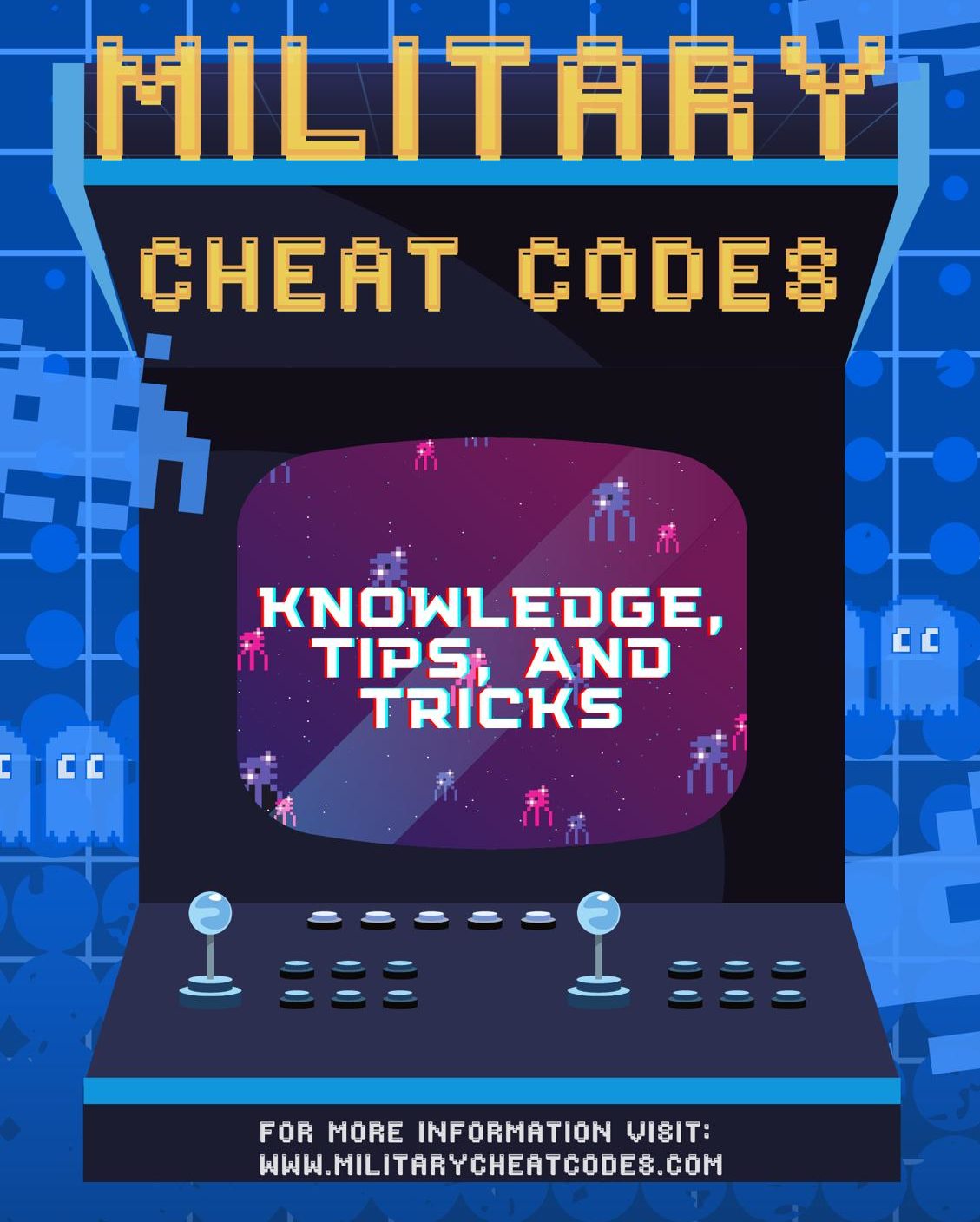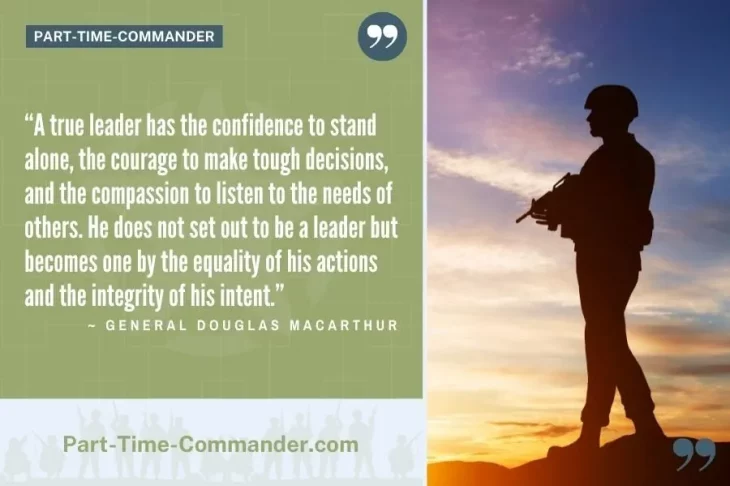Your Biggest Military Asset: Expectation Management
Everyone is here for a different reason. Remember that. In training, in conversation, and in work don’t be fooled. You are there for a different reason than your contemporaries. Your leadership has designs on capitalizing upon time spent in uniform and your subordinates’ snappy responses are likely separated from the reality of their plans – or neither have plans at all. Don’t assume.
Your greatest military asset is understanding the commodity of military membership and Managing Expectations. This is not to encourage abandonment of expectations, but achieve an active management of occurrences at in internal level. Manage how you react – how you perceive – how you proceed in any given situation.
For leaders…
Are you patriotic? The kind where you simply can’t help but cry at every anthem. The pedigreed individual who gets out of your car when the base Giant Voice brings the duty day to a close. A walking, talking American flag on the 4thof July just as much as the 4th of December. The one who still sings along, and maybe even stands, when watching sports ball on television.
Ah yes! Those people. I’ve known many. Maybe you too. Some even made good Airmen. Some. Expectation Management. There exists a tendency to allow perception to dictate reality to the point of decay, distress, and detriment to the mission…because someone so utterly in love with the country’s fanfare must have infinite potential, right? Of course. Not convinced? OK.
Enter the be-uniformed slug bug. A walking, talking disaster. The one who’s hair is constantly bed headed. The kind who releases their entrapped odor upon us without hesitancy – free of charge. Ah yes! Those people. I’ve known quite a few. Maybe you too. Some even made good Airmen. Some. Expecta….wait. Am I saying a slob may make a reliable, consequential, and undeniable impact positively? Yes. Even more than the Uber-patriot? Of course! Expectation Management.
You’re wrong about that assignment. Sure, that place is popular and there’s a better chance for you to get picked up doing that next big thing. But what do you have to contribute? Can you make a bigger impact there than – over there? Are you disappointed? The expectation of the “leadership” career ladder is an oft-debated topic. My own experience is one filled with…mostly anger with a dash of sinking remarkability.
The lesson, however, is to harness expectations to a true North Star and be decisive when competing interests align. What does that mean?
Want to be in Hawaii even with a small scope opportunity? Or maybe strike quickly at a post with 30 subordinates, wide scope, but its in Nebraska. Then there’s Eastern Washington – flailing mission with resources where all who have tried failed to enact meaningful change. Nah. I’m going to Hawaii. And that is OK. Expectation Management. The poor expectation manager falls into depression and self-sabotage when the person who took the spotlight position in Washington succeeds and fast tracks to somewhere they probably were going to get to anyway because…they were looking for it…and you weren’t. And that is okay.
And before moving on, I know you judged the slug bug. In my short career I can say I chose far more slug bugs to represent our organization than Betsy Ross Fanboys. My observations gave me three rules of thumb to manage expectations. First, the patriot loves the country, but not always the work; sometimes they love both. Sometimes. I’d rather have things done right than done flashy. I didn’t care what the leadership thought if I could prove the work was done correctly and right. Second, the slacker simply needs to see for themselves the positive outcomes when investing in their work AND their appearance. Third, they both – you should already know this one. They both are here for different reasons. Respect for that fact keeps expectations in check.
For subordinates…
Leaders are learning too. Boy are they. They will make mistakes. You will be the target of those mistakes – count on it. That one mistake may cost your career – bet on it. The military membership is a commodity – not an infinite resource. There’s no such thing as a cushion. Grow up. Now that the obvious is out of the way…Leaders often attract high, distant, and otherwise absurd expectations. They are here for a different reason too, remember?
Am I implying the best route is to adopt low expectations? Not at all. I advocate for an open, honest(ish), crossed pathway attitude. There’s a lot of unpack there and much of it may not apply to every career. Undoubtedly some fields have specific check marked requirements that are either met or not met. Lucky you. Seriously. Until you get out – then you’re going to be in trouble.
Open. Find what you want. Know what you want. And at some point, let your leadership know. If you don’t know what you want, then don’t blame leadership for their decisions about you – because they are here for different reasons and have expectation management of, well…you. Really, blaming anyone is an efficient way to tank yourself.
Honest(ish). First the (ish) part. Never tell leaders you are leaving the service unless you actually are. At that point, in most cases, you’re done. No going back. Its fine to tell them but do so in good faith. I’ve seen the act abused and it turns ugly for leaders and members. If you want to leave the party, take a bow (or don’t) and go. Otherwise, be honest with what you want with leaders. Toeing the party line doesn’t help you. Hawaii might be nicer for you than Nebraska. You may not find yourself ready or prepared for Eastern Washington. If Hawaii is what you want, then say it. The reasons are your own. Honesty leads to better decisions and…expectations.
Crossed pathways. Leaders want things too. If you want what they want or want what they have then you are at a crossed pathway. Take advantage. These are opportunities for mentorship. Learning. Being better. Doing things right. Most of my mentors came from this healthy place as opposed to simple hero worship, gossip based, or envy. I observed many a peer clinging on to a poor leader because the person told a great story…or was an Uber-patriot who fanboyed over Betsy Ross on Independence Day. Mentorship is not necessary for a net positive relationship with your leader. Only one of my direct leaders became a mentor and none of my chains of command above them. Some tried. Some wanted to, badly. Our pathways were not crossed because our reasons for being there did not align. And that’s ok.
When You Get Out
After a short career with a 5-year stint at a Service Academy, I can say for certain nothing honestly prepared me for military membership. No one told me the membership is a commodity and not an infinite resource. Nobody said there were people in uniform that would rather self-sabotage than experience someone else’s success. Most importantly, no person said it’s ok to have your own pathway because there is life on the outside. I saw fear in the eyes of some members at the slightest thought about leaving the military. Don’t do that. Life is life. If you believe you can’t succeed outside of the uniformed military circle, your management of expectations has run afoul of reality.
At one base, we had a Chief Master Sergeant commit suicide because he was removed from a Wing leadership position. At another, a pilot committed suicide – presumed to be the result of a failed promotion push. I’ve seen marriages fail because the two didn’t have expectation management of their careers. No crossed pathways. No North Star.
I’ve seen brand new airmen – all of life ahead of them – come into service, get married, have children, and become officers because they wanted to. Others did the same and became senior enlisted. And that’s ok.
I also, most importantly, witnessed excellent and mediocre servicemembers separate and completely dominate the civilian workplace. They were in the military for different reasons. They did find their success. What does it matter where? They found it.
What’s different when you get out? Better question is – what isn’t different? You got it – Expectation Management. Except this time its much more difficult. The steps are wider, the chasms deeper, and the pathway undefined. The mountains are higher, the…you get it. The military is narrow. When you get out, everything the military pre-destined for you is out the window. The subordinate you had who had the better idea…but you ignored because they were a slug bug, smelly and replete with odor, is now your boss. Not your leader. Your boss. Your hiring manager. Your mortgage. Your future. The Rootin’, Tootin’ Harold of Independence in the Stars and Stripes Flip Flops may…also be your boss. Your hiring authority. Your Director. In the military, that mattered. Not anymore. And those two are definitely your boss for different reasons. Their expectations probably start with you making them money, lowering their costs and liabilities. Best to master expectation management. Your future depends on it.

Jay Lee
Air Force Academy graduate, Bioenvironmental Engineer for 6 years, and now veteran. If were a millionaire he would travel the world… but primarily do it all in Japan.


